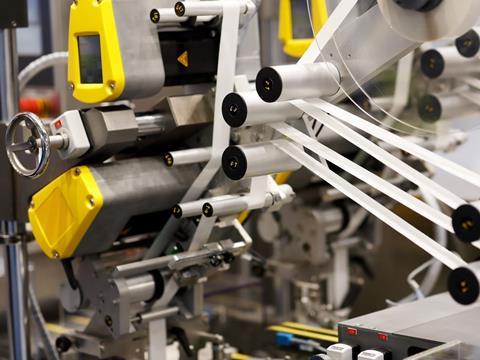
According to research by FINAT, the European association for manufacturers of self-adhesive labels and related products and services, the supply chain crisis remains a top concern for brand owners, with impacts felt across all applications and sectors.
The most recent FINAT RADAR on market trends was conducted in the autumn of 2021, which the group identifies as “the period that revealed the growing tensions in global supply chains” due to a so-called ‘perfect storm’ of factors. With the ongoing effects of the COVID-19 pandemic on supply, demand, and labour, a particularly cold year in the Northern hemisphere, and a series of Force Majeures, many industries are feeling the strain through growing lead times and rising prices.
FINAT President Philippe Voet explains: “What happened in 2020 was only small beer compared to the global supply chain disruptions that we have seen in the second half of 2021.
“Currently there are shortages of almost everything: energy, chemicals, pulp, (waste)paper, plastic, inks, transport, laminates, chips, components, people.”
Across the food, beverages, personal care, pharmaceutical, and automotive industries, the reports found supply chain concerns were “top of mind when discussing label procurement trends” for the 60-plus brand owners involved in the study.
For example, 72% and 63% of respondents said they were experiencing supply chain issues in the folding cartons and corrugated segments respectively, while 56% of respondents from both the flexible packaging and labels industries likewise reported disruptions.
Going forward, Voet adds that only “time will tell whether these tensions are a temporary adjustment problem and that there will be ‘soft landing’ in the spring of 2022, or that we are dealing with persistent tensions with a longer lasting impact that could hurt the recovery.
“It is clear from these numbers that there is no single section of the value chain that is not hit or to blame by these external factors.”
In addition, the report notes that supply chain issues were felt across the supply chain, including the ‘bottom end’. Label and packaging specifiers, engineers, and individuals involved in sourcing, procurement, research, and development all admitted to feeling the pressure of the disrupted global supply chain.
Jennifer Dochstader from LPC, who headed the research, comments: “There is tremendous concern at the bottom of the value chain regarding the stability, and availability, of raw materials and the ability for label vendors to meet delivery demands and lead time requirements.
“The current upheaval in raw material supplies has made all of us keenly aware of just how intricate and interconnected the global supply chain truly is.”
However, label procurement is likely to increase in 2020, in spite of – and perhaps even compounding – supply chain concerns, with more than three-quarters of respondents indicating plans to expand. In 2022, FINAT estimates that label procurement will increase by 5.4%, with a slightly higher expectation of 6.4% predicted for digital label procurement.
Additionally, Voet warns that “irrespective of these short to medium term tendencies, we should not lose sight of the other mega challenge facing us in the longer run: climate change and the need to make a transition to more circular economy models.
“The present supply chain tensions could accelerate the move from linear to circular consumption, turning spent products into new raw materials.”
Indeed, FINAT’s respondents also noted a desire to move towards more sustainable label and packaging solutions. The number of respondents already involved in liner recycling programmes was reportedly 41% – over double of the figure from the previous year – while 63% of respondents indicated that they would be willing to make collection hubs available for used liners, as long as these are within 200km range of the factory.
Dochstader concludes: “Each and every company we spoke with also indicated that they want to work more closely with their label vendors to co-create innovative ways of making the printed packaging industry a more resilient, and more sustainable one.”













